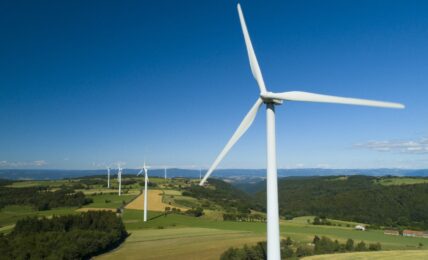European commercial bank UniCredit unveiled new 2030 targets for the reduction of financed emissions in a series of carbon intensive sectors, including oil & gas, power generation and automotive.
Along with the newly financed emissions targets, UniCredit stated that its Oil & Gas Policy now prevents all support for new explorations and expansions of oil reserves, as well as for oil and gas activity in the Arctic region. Additionally, the company’s Coal Policy anticipates the phase-out of coal financing by 2028.
UniCredit stated that the new targets align with its goal to reach net zero by 2050. The bank signed on to the Net-Zero Banking Alliance (NZBA) in October 2021, a UN-convened coalition of banks dedicated to advancing global net zero goals through their financing activities. Signatories to the alliance commit to transitioning operational and attributable GHG emissions from lending and investment portfolios by disclosing intermediate targets and reporting on progress made within bank investment portfolios.
Fiona Melrose, Head of Group Strategy & ESG at UniCredit, said:
“These targets reinforce our commitment to reach Net Zero on our own emissions by 2030 and on our financed emissions by 2050. This is alongside the action we have taken to drive forward a just and fair transition for all, particularly through green and sustainable financing and advisory activities.”
The bank’s new 2030 targets include a 29% reduction in its Scope 3 financed emissions in the oil & gas sector, a 47% reduction to Scope 1 emissions intensity from the power generation sector, and a 41% reduction in Scope 3 “tank to wheel” emissions intensity from the automotive sector, each on a 2021 basis.
The bank highlighted a series of initiatives it will pursue to achieve its goals, including
strengthening its advisory services for corporates in high emitting sectors, supporting clients in the development and scaling up of innovative climate solutions, and through targeted partnerships with companies specialised in sustainability for specific sectors.
UniCredit said that it also aims to significantly boost sustainable lending, such as green loans and sustainability linked loans, supporting client efforts to decarbonize operations and diversify away from carbon-intensive sectors.
“We have made significant progress against the ESG business targets we have set, mobilising €11.4 billion of Environmental Lending, €28.7 billion of ESG Investment Products, €12.8 billion of Sustainable Bonds and €4.8 billion of Social Lending in 2022 compared to the Group’s cumulative ESG volume goal of €150 billion over 2022-2024.”
The post UniCredit to End Financing for New Oil Projects appeared first on ESG Today.



